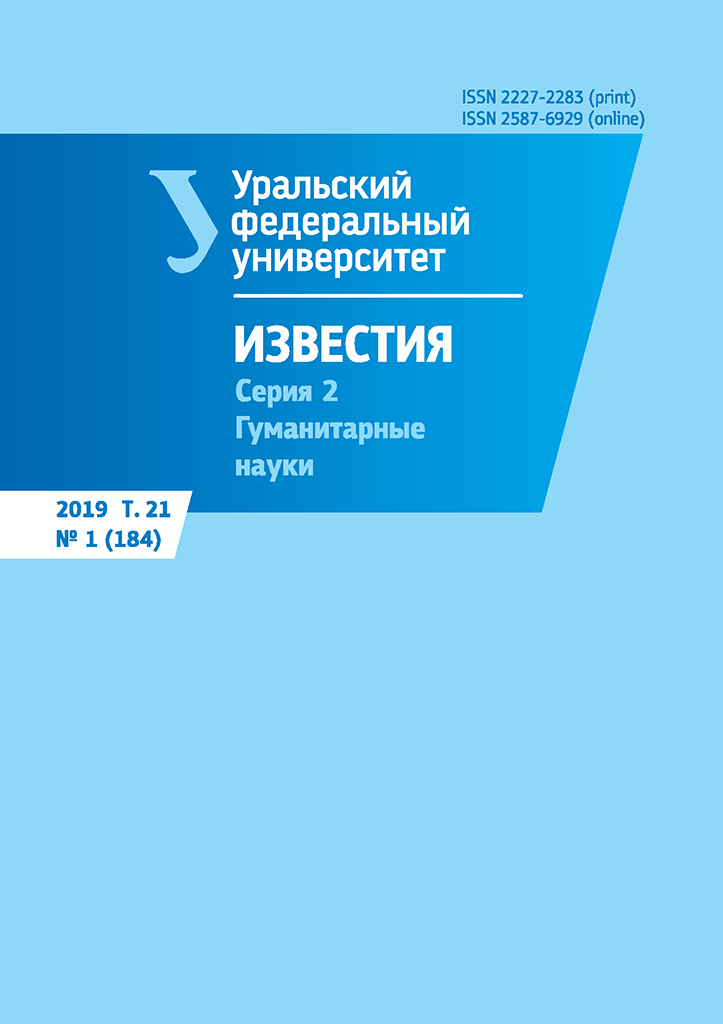ISSN: 2227-2283 (Print)
ISSN: 2587-6929 (Online)
DOI: 10.15826/izv2

Kushh T. V. Na zakate imperii: intellektual'naja sreda pozdnej Vizantii. Ekaterinburg, 2013.
Ljubarskij Ja. N. Vizantijskie istoriki i pisateli. SPb., 2012.
Papadimitriu S. D. Feodor Prodrom. Istoriko-literaturnoe issledovanie. Odessa, 1905.
Smetanin V. A. Jepistolografija. Sverdlovsk, 1970.
Chernoglazov D. A. Pjat' pisem Ioanna Ceca: avtoportret vizantijskogo intellektuala XII veka // Vizantijskij vremennik. 2008. T. 67. S. 152–164.
Chernoglazov D. A. Pluralis reverentiae – norma vizantijskogo jepistoljarnogo jetiketa? // Indoevropejskoe jazykoznanie i klassicheskaja filologija – XIX (chtenija pamjati I. M. Tronskogo) : materialy Mezhdunar. konf., prohodivshej 22–24 ijunja 2015 g. / otv. red. N. N. Kazanskij. SPb., 2015. S. 954–963.
Browning R. Unpublished Correspondence between Michael Italicus, Archbishop of Philippopolis, and Theodore Prodromos // Studies on Byzantine History, Literature and Education. 1977. Vol. 59. P. 287–288.
Conway R. S. The Use of the Singular Nos in Cicero’s Letters’ // Transactions of the Cambridge Philological Society. 1899. Vol. 5, Part 1.
Dickey E. Greek Forms of Address from Herodotus to Lucian. Oxford, 1996.
Ehrismann G. Duzen und Ihrzen im Mittelalter // Zeitschrift fur deutsche Wortforschung. 1901. Bd. 1. S. 117–149.
Gautier P. (Ed.) Michel Italikos. Lettres et Discours. Paris, 1972. (Archives de l'Orient Chrétien 14).
Gautier P. Les lettres de Grégoire, higoumène dʾOxeia // Revue des Études Byzantines. 1973. T. 31. P. 203–227.
Grünbart M. Formen der Anrede im byzantinischen Brief vom 6. bis zum 12. Jahrhundert. Wien, 2005.
Hunger H. Die hochsprachliche profane Literatur der Byzantiner. Bd. 1. München, 1978.
Jenkins R. J. H., Westerink L. G. (Ed.) Nicholas I Patriarch of Constantinople. Letters. Dumbarton Oaks, 1973.
Karlsson G. Idéologie et cérémonial dans lʾépistolographie byzantine. Uppsala, 1959.
Kolovou F. (Ed.). Die Briefe des Eustathios von Thessalonike. Munich ; Leipzig : K.G. Saur, 2006. (Beiträge zur Altertumskunde 239).
Koskenniemi H. Studien zur Idee und Phraseologie des griechischen Briefes bis 400 n. Chr. Helsinki, 1956.
Leone P. L. M. (Ed.). Ioannis Tzetzae epistulae. Leipzig, 1972.
Maguinness W. S. The Singular Use of Nos in Catullus // Mnemosyne. 1938. Third series. Vol. 7. Fasc. 2. 1938. P. 148–156.
Maguinness W. S. The Singular Use of Nos in Virgil // The Classical Quarterly, Jul.-Oct., 1941. Vol. 35. No. 3/4. P. 127–135.
Mango C. (Ed.). The Correspondence of Ignatios the Deacon. Dumbarton Oaks, 1997.
Migne J.-P. (Ed.) Patrologiae cursus completes // Series graeca. Paris, 1864. Vol. 133. P. 1239–1292.
Thraede K. Grundzüge griechisch-römischer Brieftopik. München, 1970.
Wolff P. Premières recherches sur l' apparition du vouvoiement en latin medieval // Comptes rendus des séances de l'Académie des Inscriptions et Belles-Lettres, 130e année. № 2. 1986. P. 370–383.
Wolff P. Nouvelles recherches sur le vouvoiement: quatre poèmes épiques, quatre formes d'adresses, quatre temperaments nationaux? // Comptesrendus des séances de l'Académie des Inscriptions et Belles-Lettres, 132e année. № 1. 1988. P. 58–74.
Zilliacus H. Untersuchungen zu den abstrakten Anredeformen und Höflichkeitstiteln im Griechischen. Helsingfors, 1949.
Zilliacus H. Selbstgefühlund Servilität. Studien zum unregelmässigen Numerusgebrauch im Griechischen. Helsingfors, 1953.
© (website) Уральский федеральный университет имени первого Президента России Б. Н. Ельцина
Адрес редакции: 620000, Екатеринбург, пр. Ленина, 51. «Известия Уральского федерального университета. Серия 2. Гуманитарные науки»
E-mail: izvestia.2@yandex.ru